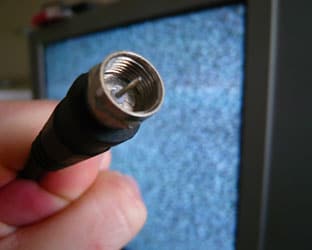Former chairmen William Kennard and Michael Powell teamed up for an OpEd in the New York Times calling for a postponement of the DTV deadline. They say we’re heading for a train wreck, and suggest that a few extra months of preparation would head it off. Among their citations: Some 19M American households maybe at risk for loss of broadcast television service; even if coupons flow again they will arrive after 2/17/09; there may not be enough inventory to handle last-minute demand; call centers as currently conceived will not be up to the task of handling the early load of consumer questions; and there are not enough people trained to assist those with problems hooking up converter boxes or antennae.
In the NYT OpEd, the former chairs wrote, “By delaying the switch to digital by just a few months, and spending more money on the program — which the Obama transition team hinted on Thursday that it might favor — we could provide enough coupons and establish a stronger call center,” they concluded. “There would be time for manufacturers to put more converter boxes in the pipeline. And we’d have enough time to work with community groups to provide technical assistance and support to the people who need it. If the transition to digital TV goes badly, it will inconvenience millions. There is no reason to rush toward a fiasco when we can just as well take the time to make sure the change happens smoothly.”
But sitting FCC chair Kevin Martin said there are fixes for the converter box coupon program, and they do not necessarily involve switching the deadline. That, he said, would only cause confusion, especially since the FCC and broadcasters have been pounding the February 17 date. A switch, he said, would only cause confusion. He called for more Congressionally-approved cash and elimination of the coupon 90-day expiration date.
RBR/TVBR observation: Delay will guarantee a worse fiasco, not “make sure the change happens smoothly.” Changing the February 17th date after months and months of promotion will confuse consumers to no end. Most people now understand that analog TV really will end on February 17, 2009. Any new date would be met with a reaction from many that – “well, they’ll probably postpone it again, so I’m not going to worry about it.” With more than a month remaining, it is time to gear up, keep getting the word out and be prepared to help American consumers through this one time change




